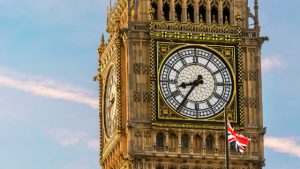
By the look of it, it seems that the curse of the White Witch, “always winter and never Christmas”, has left Narnia and visited the United Kingdom. Changed regulations in response to a mutation in the coronavirus have meant the cancellation of festivities and family gatherings, leaving some people heart-broken and many profoundly fed up.
Against this backdrop, it is not surprising that the latest skirmish in the so-called “Culture Wars” has received less attention that it might otherwise have done. In short, the University of Cambridge voted against guidelines requiring staff, students and guest speakers to be “respectful” of both the views and identities of others. There were widespread concerns that this would have led to a chilling effect on debate, fueled “cancel culture” and even led to the suppression of controversial opinions. In light of this, the University’s Governing Body adopted a commitment to “tolerance”, rather than “respect”.
Although a minority of commentators have lamented this stance, arguing that hateful and discredited viewpoints do not merit debate in an institution which values freedom of thought, the majority position appears to be far more persuasive. Firstly, the policy would not, and could not, shield speakers from prosecution for expressions which amounted to hate speech for the purposes of Criminal Law. Freedom of expression is a qualified, not an absolute right, and the legal framework already imposes boundaries. Secondly, discredited and discreditable views are more likely to perish than thrive with exposure. The suppression of debate only gives fodder to conspiracy theories, and a fetid atmosphere in which confusion and misunderstanding can breed like pathogens. Opinions which are stated openly can be challenged from a variety of perspectives, and flaws in a seemingly convincing case can be exposed. The truth is that it has never been possible to prevent the spread of ideas, and we now live in a world where anyone with a smartphone can instantly reach an audience of millions. Therefore, we wonder whether it is better that students and others encounter irrational and destructive suggestions in a public setting, where their risible nature can be exposed, or at 2am in an internet chat where they seem beguilingly plausible. Moreover, from an ideological point of view, if we feel the need to try to filter which ideas a university community can be exposed to, are we really any better than a Medieval Inquisition?
It is important to remember too that free speech does not equate to speech without consequences. If you say things which people find repugnant, you can and should expect to be called out on it. Anyone who assumes that an individual with a platform in a university setting is going to receive an easy ride, and not be challenged (and/or roasted) by undergraduates and academics, is presumably living in a landscape populated by unicorns and the extended family of the Loch Ness monster. The reality is that a university audience is not dry sponge, ready and willing to uncritically absorb any perspective being put to it, and in making policies about expressions, it is crucial to take into account that conversations are a two-way process. Even on the kind of occasions where direct interaction between speakers and addressees is limited, there will still be internal processing and organic discussions afterwards.
A related point too is that influence can be a two-way street. In having space to speak, individuals also gain space to hear, and to be confronted with reactions from perspectives different from their own. Consequently, there is scope for growth and change when exercising our right to freedom of expression.
Furthermore, most of the time, we do not live in a binary world of black and white, good and evil, heroes and monsters, and we are surrounded by shades of grey instead. Consider, for a moment, as just one example of a complex moral debate, the varied positions around feminism and transgender issues. How are we ever going to make progress and achieve a more comfortable modus vivendi, if we are not prepared to listen to views which we consider profoundly uncomfortable and challenging?
It should be remembered that we do not live in a society which sacrifices everything on the altar of freedom of expression, the right guaranteed by Article 10 of the ECHR may be limited, if sufficiently powerful reasons are put forward. As already noted, in this jurisdiction, it is quite rightly limited to exclude hate speech and statements which qualify as defamatory, which is precisely why we should always question very carefully whether and when we need extra restrictions. For all of the reasons outlined above, the decision of the University of Cambridge to adopt a moderate position in its guidance is to be welcomed.
Related Articles
The free speech row at Cambridge will restrict, not expand, expression The Guardian (18/12/20)
New Coronavirus Variant Is Identified in the UK BMJ (16/12/20)
Cambridge University Votes to Safeguard Free Speech BBC News (9/12/20)


